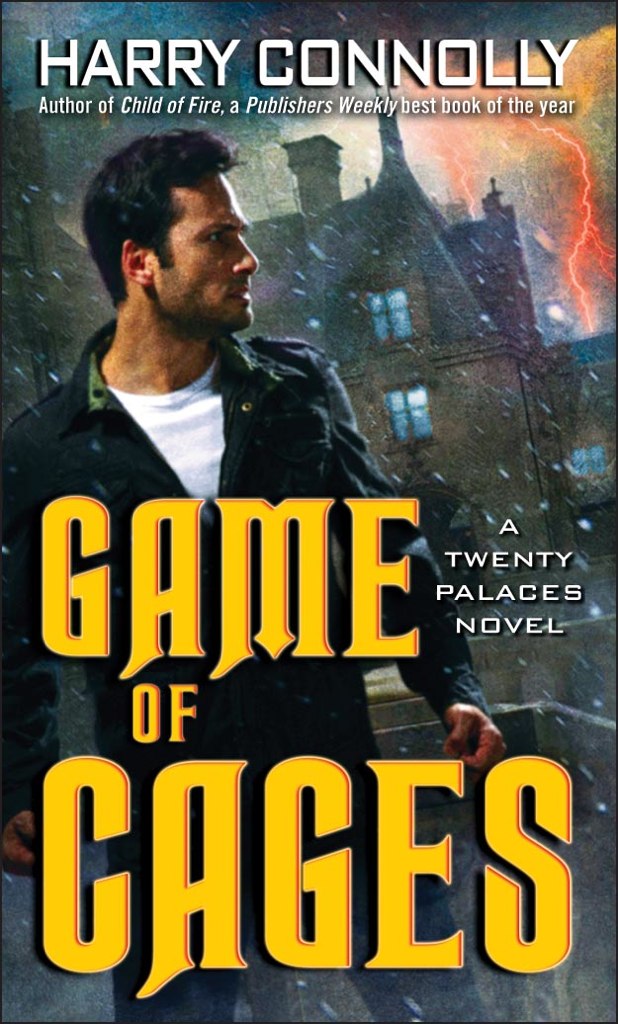So of course I’m typing this instead. Here’s my life in convenient bullet-list form, which is how I experience it myself.
* I uploaded a larger jpg of the Game of Cages cover, so anyone who missed it the first time or thought it was too dark or small can really see it now. It’s practically actual size.
* I just put the signed contracts for Russian language editions of CoF and GoC in the mail. Yay! Last night I took a deep breath and sat down to read through them, only to discover they were a civilized two pages long, with one column in Russian and one in English. Easy-peazy.
* As evidence that I am still not caught up on my sleep, I just used the phrase “easy-peazy” for the first time in my life. No, I have not been transformed into an adorable urchin in a 1950’s sitcom. I’m just feeling odd and out of sorts.
* Yesterday I got back on the “read faster” bandwagon with my current library book. As I mentioned before, I read more slowly than any novelist I’ve ever heard of, and at this point it’s a real hindrance on my productivity. The polish of Man Bites World I’ve been working would have been finished long ago if I were someone else; as it is, I’m on page 115 of 381. After I finish this post and one or two other online duties, I’ll post how far I’ve gotten at the end of my work day. Shame is a great motivator.
* If anyone is curious about the book I’m reading, it’s Deep Survival: Who Lives, Who Dies, And Why by Laurence Gonzales. It’s a bit of a narrative wander, but the subject is fascinating. So far, I recommend it highly, especially if you’re interested in why people seem to do exactly the wrong thing in stressful situations.
* Someone on Justine Larbaletier’s blog recommended Mac Freedom, a free software download that turns off a Mac’s wireless for any length of time the user wants. My eyes bugged out of my head, because this was the thing I’d always wanted without knowing it. I headed to download.com to read their review of it first, and was startled to see the review say it was a silly program because a Mac’s wireless capability was trivially easy to turn off already.
It took me a moment to realize they meant clicking the little fan in the upper toolbar. Yeah, it’s trivially easy to turn off, but it’s also easy to turn back on when I’m stuck or frustrated. Do they expect me to have some sort of self-control? I’m not made of stone, people!
Okay. More coffee, then on to page 116.
